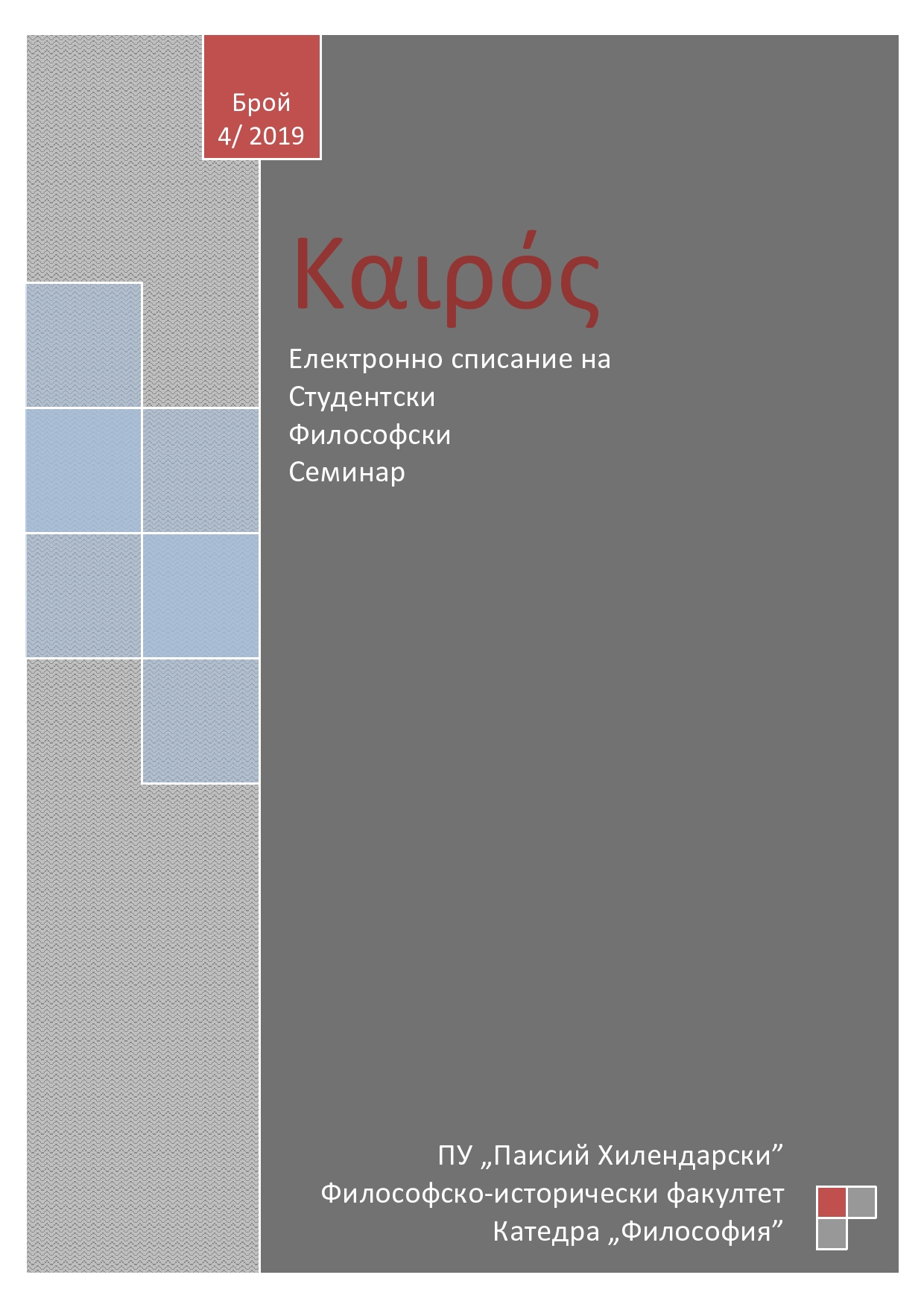Възприемането на логически обекти (Ръсел и Кант)
The Perception on Logical Objects (Russell and Kant)
Author(s): Valentin AsparuhovSubject(s): Philosophy, Philosophical Traditions, Analytic Philosophy
Published by: Пловдивски университет »Паисий Хилендарски«
Keywords: a priori synthesis; perception; logical objects; logical imagination
Summary/Abstract: The starting interest of the article is oriented on the problem of a priori synthesis and its initial and paradigmatic raising in the Critique of Pure Reason. Its completing and strengthening interpretations of the early 20th century, especially those deployed in the context of the Davos debate, will not be discussed. Although some of their propositions are used and despite their doubtless originality and depth, they have no direct impact on the clarification of the link between a priori syntheses and the perception of logical primitives. The statement that ‘there can be no truths in themselves or eternal truth, and as far as truth exist at all, they are correlative to Dasein“transforms the problem of a priori synthesis thus: since for the subjectivity that cognizes in experience, which is finite, no eternal and necessary truths are possible, then how it is possible, under the conditions of this finitude, there to be necessary and universal truths? How are such synthetic a priori propositions possible that are, on the plane of content, universal and necessary? Passing through Kant and the question that he raised on the foundations of the cognitive link – how is knowledge possible, or what are the conditions of possibility of the cognitive synthesis – I will go to Russell to discuss the character of perception of logical objects. Aware of the arbitrariness of some of my analogies, I will try to justify the assumption that the British philosopher couldn’t overcome the shadow of his Kantian past.
Journal: Καιρός
- Issue Year: 2019
- Issue No: 4
- Page Range: 9-15
- Page Count: 7
- Language: Bulgarian

